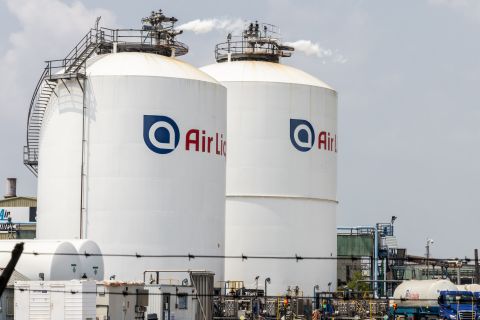Few pollsters envisioned a path for Donald Trump to the presidency, but voters once again proved them wrong. For those working in the energy sector, the Trump presidency is likely to translate into moves to mitigate or reverse an overhang of existing or pending regulations viewed as harmful.
“He’s not out to put us out of business,” said Harold Hamm, CEO of Continental Resources Inc., who some see as a candidate for the position of energy secretary. “Donald Trump is pro-business.”
In terms of beneficiaries of Trump’s policies, several observers pointed to Energy Transfer Partners, which operates the Dakota Access Pipeline (DAPL). As many know, the DAPL project was stalled—even after all necessary permits were awarded—after the Department of Justice intervened in the case and called for a halt in construction of the pipeline.
A research report by Stifel said the Trump election and imminent change in administration should “substantially reduce the headwinds” of the DAPL project. Similarly, a Robert W. Baird research report said “we do not believe that the U.S. Army Corps of Engineers will continue to hold up the last leg of the DAPL with a Trump presidency looming.”
On November 9, the first day of trading after the election, Energy Transfer Partners’ stock closed up 11.1% at $31.08.
The Stifel report also highlighted Spectra Energy Partners, which it said currently has some $6 billion of growth projects under construction and “should also have a more favorable environment” in which to operate. Projects were mostly in the Northeast, including its Access Northeast project, which “recently faced stiff state-level scrutiny.” While state issues may persist, those projects requiring Federal approval should face less resistance, it observed.
Spectra is also favored by Wells Fargo Securities’ MLP research team and is included, along with Energy Transfer Partners, in its four “top picks” in the large cap pipeline MLP sector. Closing prices for the Wells Fargo selections, post-election on November 9, were favorable: Plains All-American Pipeline, $30.67, up 4.2%; Spectra Energy Partners, $41.45, up 2.4%; and Sunoco Logistics Partners LP, $26.10, up 7.6%.
Seaport Global Securities pointed out it was possible that Trump could “expeditiously approve” the Keystone XL Pipeline project of TransCanada Corp. However, the Seaport Global report added that “it is not clear whether there is enough shipper commitment and economic rationale for that pipeline at this stage.” TransCanada’s stock closed up 2.4% at $44.82 the day after the election.
Interestingly, some of the more pronounced stock moves came among engineering and construction firms, possibly in the wake of earlier Trump comments that over $500 billion was planned for rebuilding U.S. infrastructure over a period of years. For example, the stocks of Chicago Bridge & Iron Co., Fluor Corp., Jacobs Engineering Group Inc. and KBR Inc. all registered gains of 8-11%.
Energy—in particular infrastructure—forms part of the “vision” laid out on the Trump website. It cited “private sector energy infrastructure projects—including pipelines and coal export facilities—to better connect American coal and shale energy production with markets and consumers.” Other, more general infrastructure needs included over 60,000 bridges that were termed “structurally deficient.”
Trump’s stance in championing the coal sector raises some questions as that industry strives to regain a more competitive position against natural gas.
“In our view, the Trump presidency likely nets positive for North American oil-weighted producers and midstreamers, but possibly negative for natural gas prices as coal makes a comeback,” said a Robert W. Baird research report. “A course correction back toward fossil fuel usage likely manifests itself through reduced federal interference across multiple agencies,” it added.
Overall, continued Baird, “we expect more resource availability over time in all fossil fuel production, including coal. (And) reversing course in the regulatory constraints for coal likely reduces some of the competitive benefits that natural gas has accrued.”
And, of course, that’s the whole point: competition amongst sectors on a basically level playing field. Trump has stated his policy is to supports all forms of energy and will let market forces—rather than government—decide which ones succeed.
Recommended Reading
Baker Hughes Awarded Saudi Pipeline Technology Contract
2024-04-23 - Baker Hughes will supply centrifugal compressors for Saudi Arabia’s new pipeline system, which aims to increase gas distribution across the kingdom and reduce carbon emissions
Air Products Sees $15B Hydrogen, Energy Transition Project Backlog
2024-02-07 - Pennsylvania-headquartered Air Products has eight hydrogen projects underway and is targeting an IRR of more than 10%.
Air Liquide Eyes More Investments as Backlog Grows to $4.8B
2024-02-22 - Air Liquide reported a net profit of €3.08 billion ($US3.33 billion) for 2023, up more than 11% compared to 2022.
From Restructuring to Reinvention, Weatherford Upbeat on Upcycle
2024-02-11 - Weatherford CEO Girish Saligram charts course for growth as the company looks to enter the third year of what appears to be a long upcycle.
TechnipFMC Eyes $30B in Subsea Orders by 2025
2024-02-23 - TechnipFMC is capitalizing on an industry shift in spending to offshore projects from land projects.





